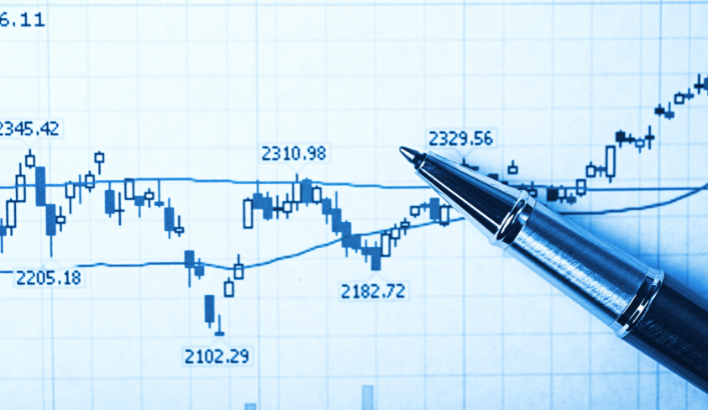Vantage uses cookies that are essential for our website to work. We also use optional analytical cookies to help us to improve our website and the services, content and ads we provide to you which you can accept or reject here. Please see our Cookies Policy for more information on how we use cookies.
CFDs and Spread Bets are complex instruments and come with a high risk of losing money rapidly due to leverage. 73.5% of retail investor accounts lose money when trading CFDs and Spread Bets with this provider. You should consider whether you understand how CFDs and Spread Bets work and whether you can afford to take the high risk of losing your money. Please seek independent advice if necessary.
Market Liquidity: What Is It And How To Make Use Of It

The term ‘liquidity’ is constantly being tossed around in the finance industry, but what exactly does it mean? Today, we will explore the concept of liquidity, its importance in trading and investing, and some of the factors that can influence market liquidity.
Let’s dive into the world of liquidity and explore its significance in the financial ecosystem.
What is Liquidity?
Liquidity can be considered at both the asset level (how easily an individual asset can be bought or sold) and the market level (how easily participants can trade within the entire market).
Asset liquidity refers to the ease with which an asset can be bought or sold in the market without significantly affecting its price. A highly liquid asset can be quickly converted to cash with minimal price impact, while an illiquid asset may require more time and effort to sell or may need to be sold at a discount to its fair market value [1].
A typical example of a liquid asset class would be stocks that can be traded and sold, while an asset like bonds is less liquid given that they come with holding periods.
What Is Market Liquidity?
Market liquidity refers to the ability of a market to facilitate the buying and selling of assets with ease and without causing significant price fluctuations. A market is considered highly liquid when there is a large volume of trading activity, allowing participants to execute transactions quickly and easily at stable prices [2].
Here are some advantages when trading highly liquid markets [3]:
- Faster execution: In liquid markets, orders are more likely to be filled quickly, which is particularly important for traders who need to react to market movements rapidly.
- Lower transaction costs: With tight bid-ask spreads, the cost of trading is reduced, making it more attractive for participants to enter and exit positions.
- Less price impact: The ability to trade large volumes without causing significant price fluctuations reduces the risk of price manipulation and increases market efficiency.
- Improved price discovery: High liquidity enables more accurate pricing, as it reflects the combined knowledge and expectations of a larger number of market participants.
Examples of Liquid and Illiquid Markets
The foreign exchange market is an excellent example to showcase a highly liquid market. The daily traded volume for forex market is in the trillions, and major currency pairs, such as EURUSD, have high liquidity and tight bid-ask spreads [4].
A close runner up to the forex markets would be the stock market. Major stock exchanges are considered highly liquid markets, such as the New York Stock Exchange (NYSE), or the NASDAQ. The shares of such large-cap companies can be easily bought and sold without significant impact on prices [5].
On the other end of the spectrum, illiquid markets can include the real estate market as the buying and selling of property can be a lengthy and time-consuming process. From property appraisals, to inspections, negotiations, and even financing, the whole process may take weeks to months [6].
Lastly, another example of illiquid markets is the penny stock market. Penny stocks often have lower trading volume and fewer market participants, resulting in higher bid-ask prices and lesser liquidity [7].
Does Liquidity Matter When Trading CFDs?
Yes, it does, CFD’s are still impacted by the liquidity of the underlying market.
High liquidity in CFD trading allows for higher price accuracy, execution speed, tighter spreads, and reduced volatility. Here at Vantage when you open a Vantage PRO ECN Account, traders can have access to institutional grade liquidity from the world’s leading providers at their fingertips.
Interested to access deep liquidity and true ECN spreads? Open a Live ECN account here.
Conclusion
By knowing what liquidity is and its implications, traders and investors alike can execute more informed decisions when selecting various asset classes.
As the global economy and financial markets continue to evolve, market liquidity will remain a cornerstone of well-functioning and vibrant markets, fostering growth and opportunities for all market participants.
Looking to take a ‘dip’ into highly liquid markets? See what markets Vantage offers here or sign up for a demo account here.
References
- “Asokan, N. How a liquidity asset can help your cash flow at short notice – Agicap.” https://agicap.com/en/article/liquidity-asset/ . Accessed on 9 January 2023
- “Hayes, A. Understanding Liquidity and How to Measure It – Investopedia”. https://www.investopedia.com/terms/l/liquidity.asp . Accessed on 14 March 2023
- “Scott, G. Liquid Market: Definition, Benefits in Trading, and Examples – Investopedia”. https://www.investopedia.com/terms/l/liquidmarket.asp . Accessed on 29 April 2022
- “Definition of Liquid Market from FOREX.com. (n.d.) – Forex”. https://www.forex.com/en-uk/glossary/liquid-market/ . Accessed on 21 March 2023
- “Nickolas, S. What Investments Are Considered Liquid Assets? – Investopedia”. https://www.investopedia.com/ask/answers/032715/what-items-are-considered-liquid-assets.asp . Accessed on 25 July 2021
- “Illiquid – Corporate Finance Institute”. https://corporatefinanceinstitute.com/resources/capital-markets/illiquid/ . Accessed on 16 February 2023
- “What is Penny Stock? Definition of Penny Stock, Penny Stock Meaning – The Economic Times. (n.d.) – The Economic Times”. https://economictimes.indiatimes.com/definition/penny-stock Accessed on 21 March 2023
Disclaimer
Vantage does not represent or warrant that the material provided here is accurate, current, or complete, and therefore should not be relied upon as such. The information provided here, whether from a third party or not, is not to be considered as a recommendation; or an offer to buy or sell; or the solicitation of an offer to buy or sell any financial instruments; or to participate in any specific trading strategy. Any research provided does not have regard to the specific investment objectives, financial situation and needs of any specific person who may receive it. We advise any readers of this content to seek their own advice. Past performance is not an indication of future results whereas reference to examples and/or charts is solely made for illustration and/or educational purposes. Without the approval of Vantage, reproduction or redistribution of this information is not permitted.
Latest Releases
-
How to Buy Bonds in the UK
Bonds are a popular debt instrument that can offer capital gains, steady income or potential to profit from speculation. Here’s …
-
Forex Broker UK – All You Need to Know
Forex brokers offer retail investors in the U.K. speed, convenience and cost savings for global forex trades. Here’s what you …
-
Top 5 UK Stocks to Buy in 2023
From aviation to banking and property development, we picked five best U.K. stocks listed on the London Stock Exchange to …
-
May 15,2024
The Role of AI and Machine Learning in Forex Trading
Explore how AI and machine learning are revolutionising forex trading, enhancing decision-making and increasing market efficiency.
-
May 15,2024
Mastering Forex Risk Management
Learn how to manage forex risk effectively to protect capital and optimise returns, despite market volatility and global economic events.
-
Apr 08,2024
AI and Reactivity – How AI Can Enhance Trading News Reaction Times
Explore how AI transforms trading news response times, ensures swift reactions, and mitigates risks in the fast-paced financial markets.









